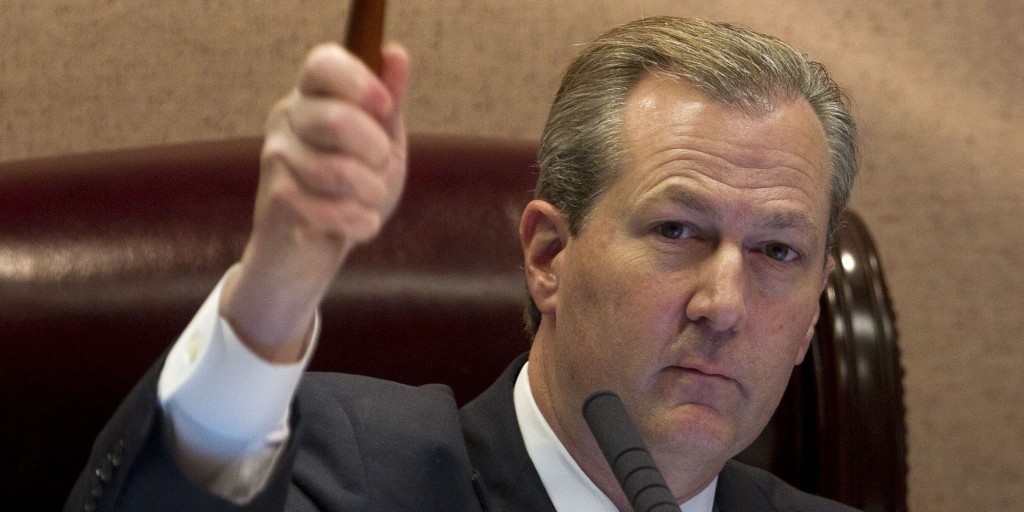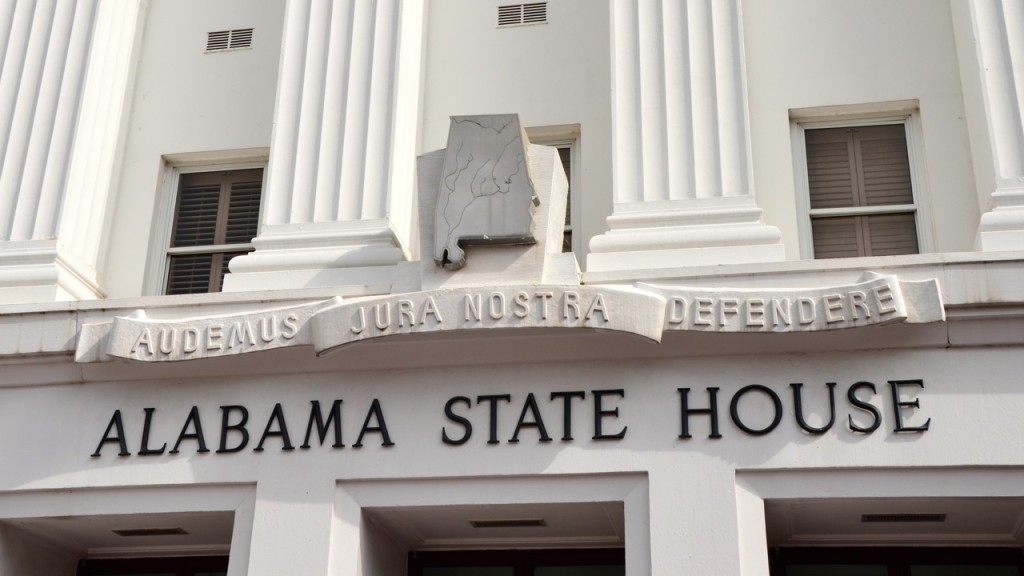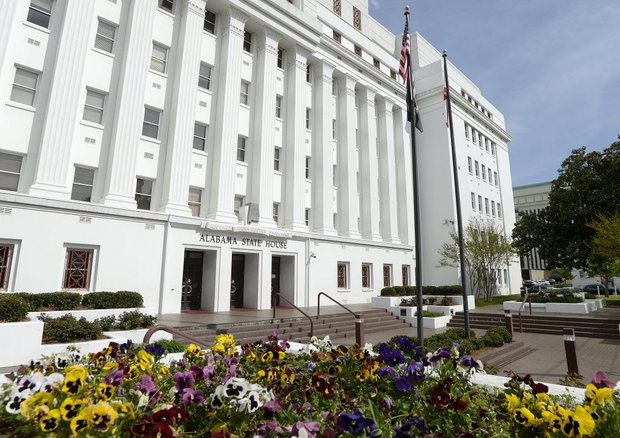House speaker warns against chasing “phantom” funds in state budget

In recent weeks, proposals to tackle state budget reform have floated through the Statehouse as lawmakers explore options to correct Alabama’s fiscal woes. The argument, according to Sen. Gerald Dial who wrote the most recent reform bill, is that the state has enough money to pay its expenses if only lawmakers weren’t bound by earmark provisions and the walled-off nature of the education and general fund budgets. Dial explained the situation just before the Senate finance and taxation committee voted on Senate Bill 502. “I’ve heard it said that one of the problems we’ve got in this state is that we’ve got earmarking,” Dial said. “We’ve got almost $3 billion in Heritage Trust Fund. Just think what we could do [with that money]. Without earmarks, there’s enough funding in this state to fund government for more than five or 10 years.” That’s an issue House Speaker Mike Hubbard seems willing to explore. This week, Hubbard announced a new Commission on Earmarking and Budget Reform to study the state budget process, including earmarking, appropriations, spending oversight, and the fact that Alabama is one of only three states with two separate budgets. That commission’s findings won’t be available to lawmakers until the 2016 legislative session. Meanwhile, Hubbard is raising concerns about pursuing “phantom” money when considering proposals to unify the state budget. In a recent radio interview, Hubbard explained his position on efforts to pull the reported $300 million to $400 million surplus in education funding to ease pressure on the general fund. Unifying the budget “doesn’t create more money in the immediate term,” Hubbard said. “And the only way that is going to fix anything is if we were spending too much money on education. I don’t think we’re spending too much money on education. We have put some measures in place […] — the Rolling Reserve Act — that forced this Legislature and future Legislatures to have the discipline to not spend every amount of money that we think we’re going to have.” In a presentation to lawmakers in March, the Legislative Fiscal Office projected a $287 million surplus in the Education Trust Fund and a $290 million shortfall in the General Fund. Some have questioned whether the practice of claiming tax revenue for the Education Trust Fund – then creating a barrier between the education and General Fund – is the root cause of the state’s current budget shortfall. Senate Bill 502 would create a single state budget and remove earmarks within the budget so that lawmakers and agencies could prioritize expenses. Several lawmakers, including Sens. Cam Ward and Rodger Smitherman, have raised concerns that a unified budget would allow Medicaid and corrections expenses — currently walled-off in the Alabama General Fund — to eat through funding for public schools. According to Hubbard, those concerns are valid because the surplus isn’t there. “That’s just money we created that we’re not going to appropriate,” he said. “If you take that and move it over, that violates the principle that we were saying: that we’re not going to be like the Democrats and spend more money than we have. “That so-called surplus? It’s phantom money,” Hubbard said. “This is money that is projected that we will have. It’s not sitting in a bank somewhere, this is money we think is going to come in between now and the end of the next fiscal year.” As lawmakers prepare for a possible Special Session, Hubbard cautioned against relying on an education surplus for long-term budget planning. “There’s some in our House who think we ought to do that — particularly the new guys who just came in. […] Anything above the cap, we said we would spend on nonrecurring capital expenses or one-time expenses because we don’t know whether it’s going to be there the next year or not. To get the General Fund dependent on that money is doing nothing to solve the long-term problem.”
Senate delays vote on controversial plan to unify state budget

After a lengthy debate on the Senate floor late Thursday, lawmakers voted to carry over a bill to unify the Alabama general fund and education budgets. Sen. Gerald Dial filed Senate Bill 502 to allow voters to decide whether to establish a single state budget and remove any recommendations or limits on how funds within that budget should be spent. On Thursday, Dial again urged lawmakers to allow the issue to go before the voters of Alabama: “I’m trying to offer another alternative to some of the problems we’re in.” Dial repeated the reasoning he used during the finance and taxation committee meeting this week, when he said that without the practice of earmarking, or placing limits on how money is spent within the budget, Alabama lawmakers might have a different set of funding decisions to make this session. Sen. Rodger Smitherman, a Democrat, spent more than an hour attempting to block the legislation over concerns that the proposal would erase funding for Alabama’s public schools. “I’m standing here for every child in Jefferson County because they can’t vote,” Smitherman said. “I’ve heard the facts, we are 49th in this country [for education], we can’t fully fund textbooks, the last time the teachers had a raise was 2008 […] now we’re saying that there’s enough money left in the Education Trust Fund to fund all these other things. Not on the backs of our young people.” The decision to carry over the legislation was made by voice vote.
Plan for earmark-free state budget passes Senate panel

A bill by Sen. Gerald Dial to unify the Alabama general fund and education budgets moved forward in the Senate Tuesday, as the finance and taxation committee gave a favorable report to Senate Bill 502. The proposal would allow voters to decide whether to establish a single state budget and remove any recommendations or limits on how funds within that budget should be spent. During the committee meeting Tuesday, Dial said that without the practice of earmarking, or placing limits on how funds are spent within the budget, Alabama lawmakers might have a different set of funding decisions to make this session. “I’ve heard it said that one of the problems we’ve got in this state is that we’ve got earmarking,” Dial said. “We’ve got almost $3 billion in Heritage Trust Fund. Just think what we could do (with that money). Without earmarks, there’s enough funding in this state to fund government for more than five or 10 years.” With just five days left in the regular session, lawmakers may run out of time to pass SB 502 this year. However, House Speaker Mike Hubbard has already announced plans to form a Commission on Earmarking and Budget Reform to study the state budget process, including earmarking, appropriations, spending oversight, and the fact that Alabama is one of only three states with two separate budgets. In a prepared statement issued Monday, Hubbard said the commission will make recommendations “to provide much-needed flexibility in the budgeting process.” That commission is expected to issue its findings before the start of the 2016 legislative session.
Alabama legislative agenda preview: May 26-28

Tuesday will be the 25th Legislative Day for Alabama lawmakers, leaving just five more days for the legislature to pass a general fund budget. Sen. Gerald Dial has filed a constitutional amendment to unify the education and general fund budgets for future years in an effort to solve the long-term imbalance in funding between the two funding pools. While an earlier proposal filed in the Senate would allow the two funds to share growth revenue, Senate Bill 502 would create a single budget without any earmarks for specific programs or budget items. The Senate finance and taxation panel is expected to vote on the proposal on Tuesday at 1:00 pm. We may see more news from the Senate on Tuesday as Senate President Pro Tem Del Marsh confirmed plans to bring his lottery and gaming proposal to the floor for a vote. House members are scheduled to vote Tuesday on House Bill 664, a plan from Sen. Jabo Waggoner to allow members of the Alabama Public Charter School Commission to be appointed by the Governor, Lieutenant Governor, President Pro Tempore of the Senate, and the Speaker of the House of Representatives rather than the state board of education. According to the House special order calendar, members are also scheduled to vote Tuesday on bills to allow age-appropriate sexual abuse awareness programs in public schools, establish greater protection for victims of domestic violence, and a measure to block abortion clinics from operating near public schools. Here are a few of the items on committee agendas this week: … The House Judiciary committee will consider two bills this week to strengthen civil rights protections in the LGBT community. On Tuesday, the panel will hear public comment on House Bill 657, companion legislation to a proposal filed last week by Sen. Del Marsh to ban employment discrimination on the basis of gender expression, gender identity and sexual orientation. The next day, lawmakers will hold a public hearing on House Bill 615, Rep. Chris England’s proposal to establish civil rights protections against any discrimination based on sexual orientation, gender identity, or familiar status. … The House committee on public safety is scheduled to vote on House Bill 261, the companion bill to Senate Bill 468, also known as the Alabama Dog Tethering and Outdoor Shelter Act. Rep. Steve McMillan brought the bill to make it illegal for dog owners to tie their pets to stationary objects and says that any pet kept outside must have adequate food, water, and shelter.

